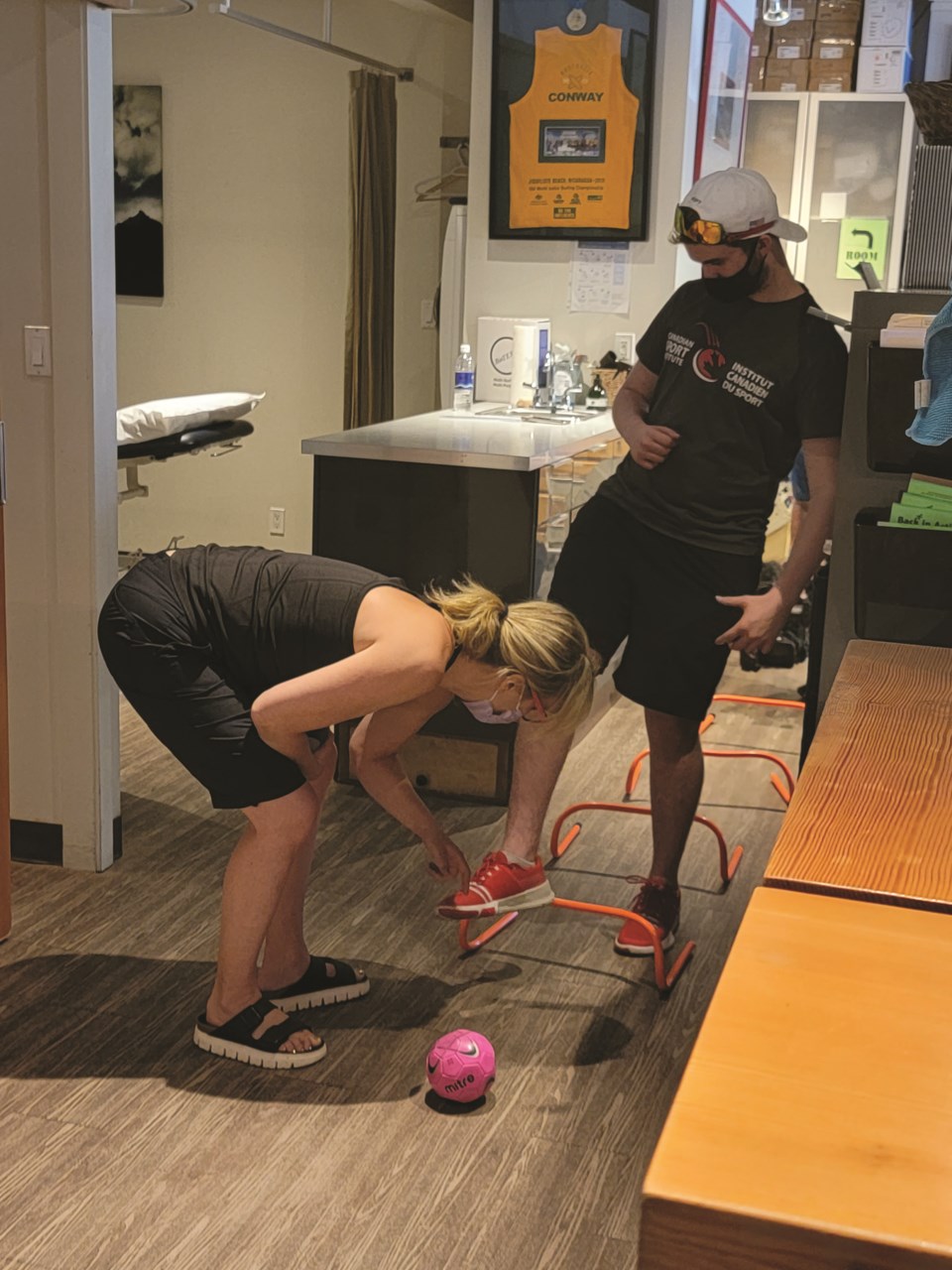Three minutes. Just 180 seconds. That’s all it took for Whistler luger Garrett Reid’s life to change forever.
At 5 p.m. on Nov. 16, 2019, Reid was an Olympic hopeful about to complete his last practice session in Whistler before heading off to Austria to compete in a Junior World Cup event, all while chatting on his phone to some of the friends he’d be competing against.
By 5:03 p.m., a seemingly routine crash turned out to be anything but, as Reid spent the next several months in a coma fighting for his life. Doctors gave him only a four-per-cent chance at survival.
Fast-forward to today and Reid has made a miraculous recovery to the point of walking, talking and doing most daily tasks without any assistance.
But despite how far he has come, the slow rehab process is a source of constant frustration for Reid. He remembers the high point of his career before the accident, but has hardly any memories of his recovery since, which can make it difficult for him to grasp the progress he’s made.
“I’m angry,” said Reid. “I missed the Olympics. I made the team for the Olympics, then crashed.
“[Rehab is] slow. I want to be better now. I just want to be back with my team.”
However, for Reid’s mom Leesa, who has been keeping a daily journal of her son’s recovery and saw every second of the process that he can’t fully remember, just being where he is now is nothing short of a miracle.
“I just wrote to him about our day and what happened … who we saw, who he talked to right before. Just letting him know all that stuff and keeping track of all the things that happened to him in the hospital, who came to visit, ups and downs, how I was feeling,” said Leesa.
“We’ve gone back and read a lot of it, and we used a lot of the pictures to show him—when he’s not feeling like he’s doing very well—how far he’s come, how many people care about him and where he was and what he did.
“[When he was in a coma], I got a video of his toe twitching. And just him being able to move any part of his body made nurses squeal, and I just thought it would be great for him to see the journey he was on.”
While Reid’s recovery is going well, there is still a long way to go before he is 100 per cent again. And with that timeframe comes a substantial financial burden for the family, as there is no funding available to help cover the costs of rehab once you leave the hospital.
“We started doing all of his paid rehab in May. So we were paying for that, but we knew we would be reimbursed for it and it would be mostly covered. But then we found out in November that none of it would be reimbursed. Which is kind of a big shock,” said Leesa about the approximately $300,000 in rehab costs they are facing over the next few years.
“But you can’t put a price on somebody’s health. He’s a 16-year-old kid, he deserves to be put back to the way he was and not just get back to a normal life. So, whether or not we can afford it, we’re doing it. There is no way that we would not do everything we can.”
Luckily for the Reids, Luge Canada stepped up and started a GoFundMe campaign to help cover some of the costs of Garrett’s rehab, which has already raised nearly $50,000 dollars in just a couple of weeks.
“It’s a difficult position to be in to have to agree to ask people to help us because that’s not usually who we are, but we honestly didn’t have an extra $300,000 just sitting around to help us with that,” said Leesa.
“It’s been heartening to know that people are caring about him and supporting him and want to see him have the chance to get back to full health.”
For Reid, being back to full health means getting back on his sled “as soon as possible,” hopefully in time to fulfil his pre-accident goals of competing in the Olympics at the 2026 Winter Games in Milan, Italy.
And for Leesa, despite being front and centre for the crash that almost took her son’s life, there is nothing she would rather see than him getting back to the sport he loves.
“The day after the accident, during the same conversation when the doctor told us Garrett had a four-per-cent chance of surviving, I asked if the brain injury would prevent Garrett from being allowed to slide again. The doctor said if Garrett survives … and he is in good enough shape physically to slide, he would clear Garrett for sliding,” said Leesa.
“When Garrett started to come out of the coma and had re-learned talking, our first discussions were about when he could get back to the gym and sliding.
“I am excited to see what he can accomplish. If Garrett is able to slide, I will be right there to watch and will meet him at the finish line.”




